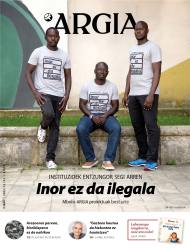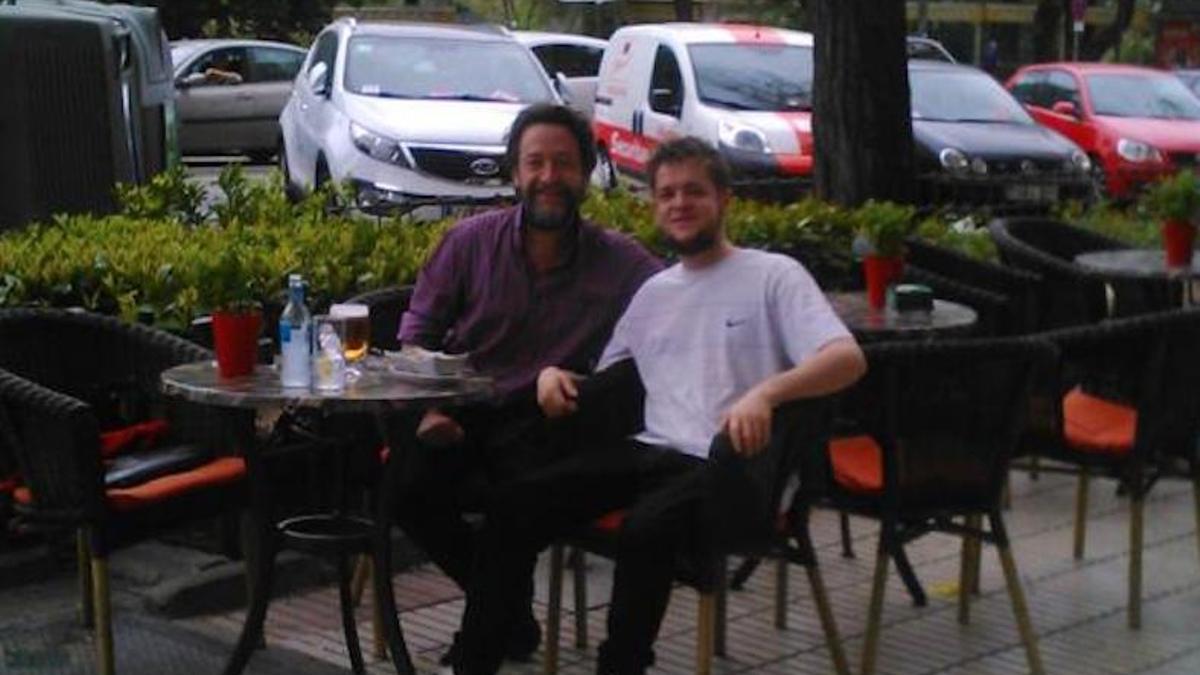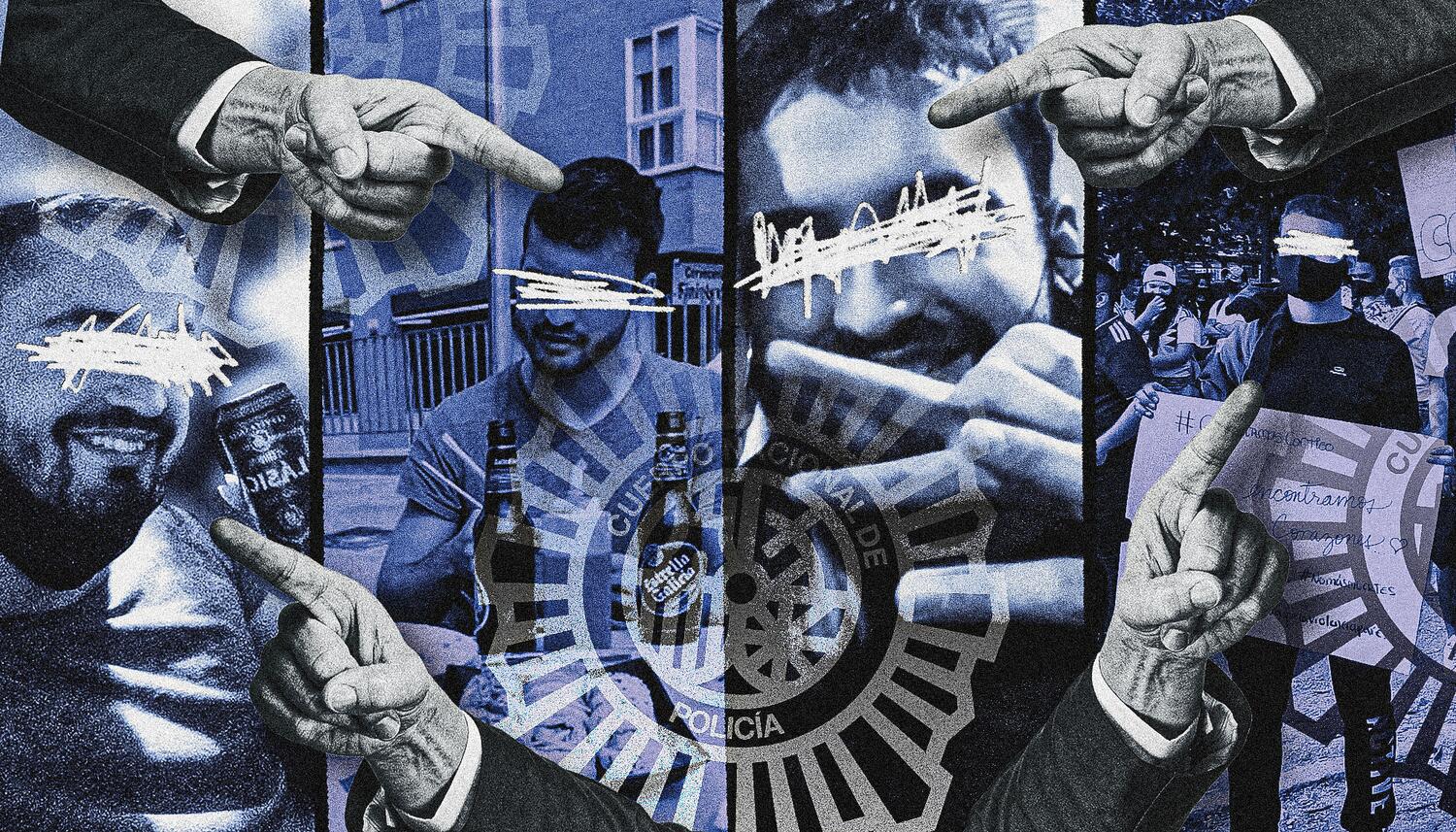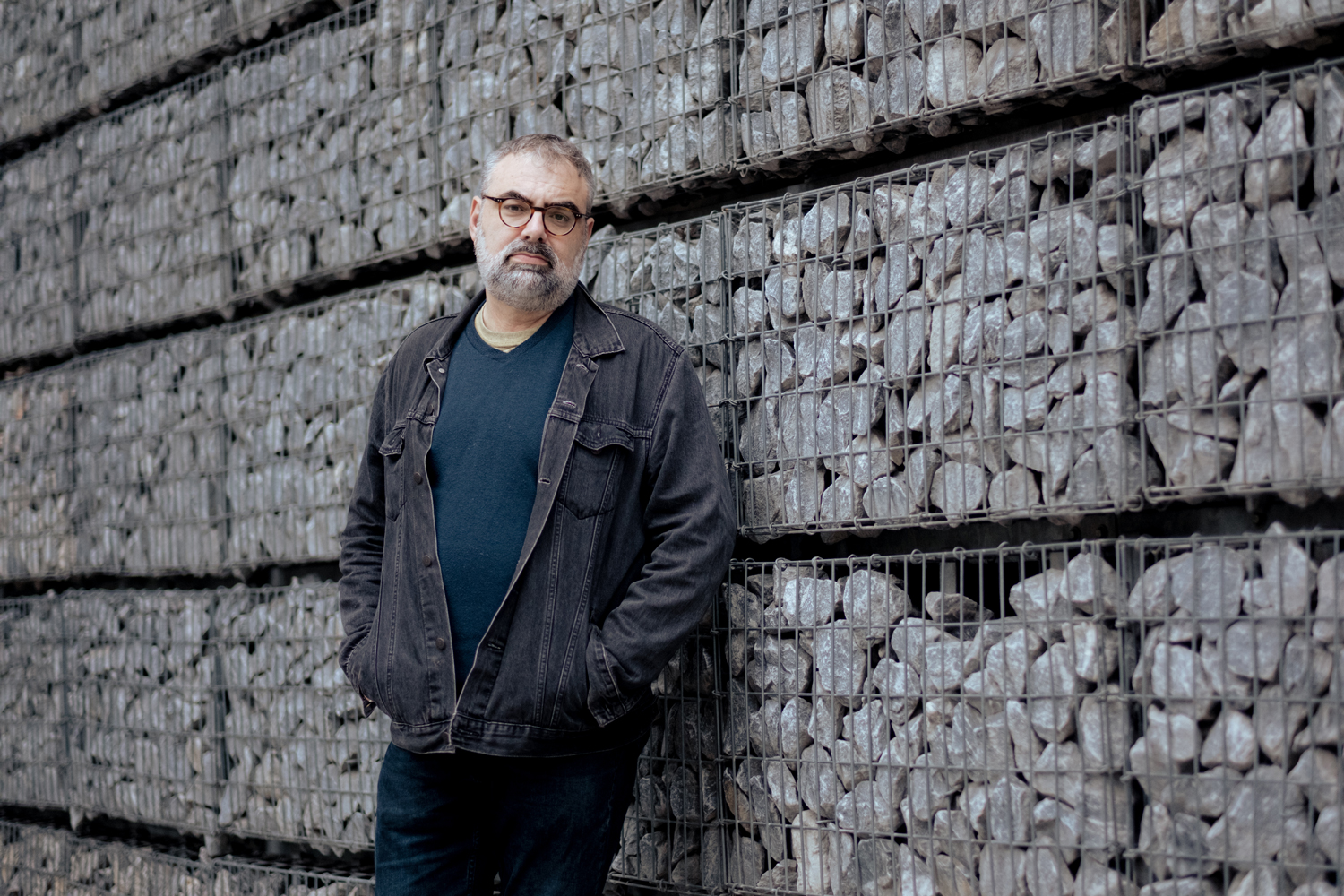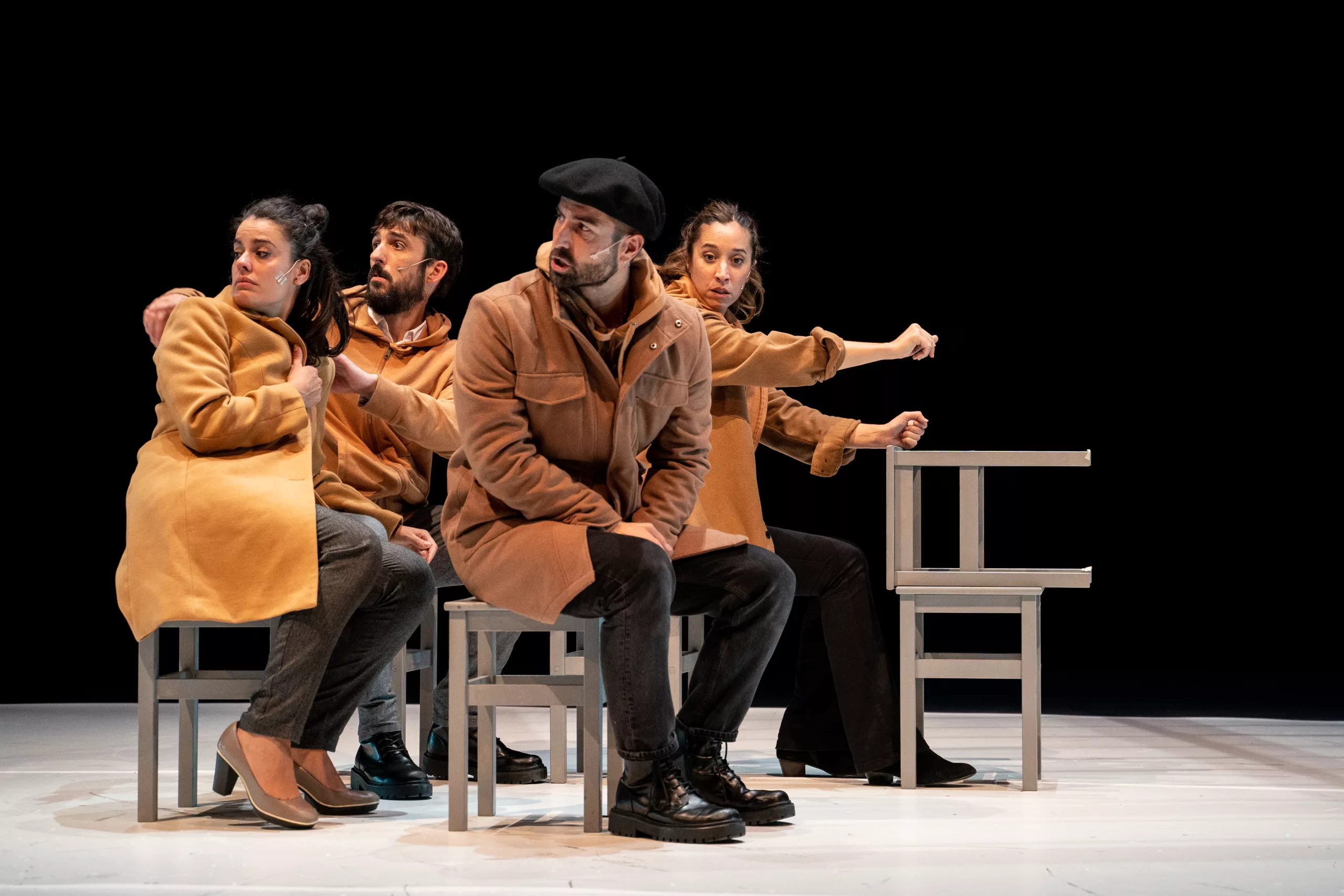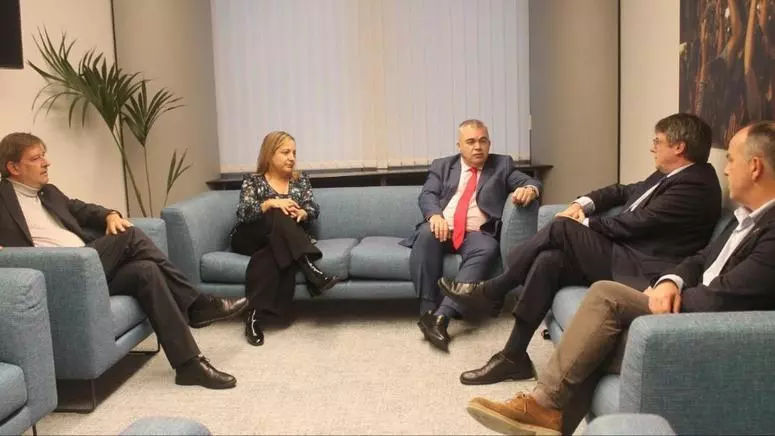"It's a humanitarian emergency, and the catastrophe is not natural, it's been caused by the administration."
- Houda Akrikez lives in the Madrid district of Cañada Real (Tanger, 1982), president of the Tabadol Association, 16 kilometers from the Plaza de la Puerta del Sol. In the neighbourhood, 4,000 people have been without electricity for three years, including 2,000 children, since the Naturgy company cut off its electricity supply. At the Harian Festival of Hernani the short film Although it is by night of Guillermo García, which shows the reality of Cañada, in which Akrikez has been to make known the situation and the struggle of the neighborhood.
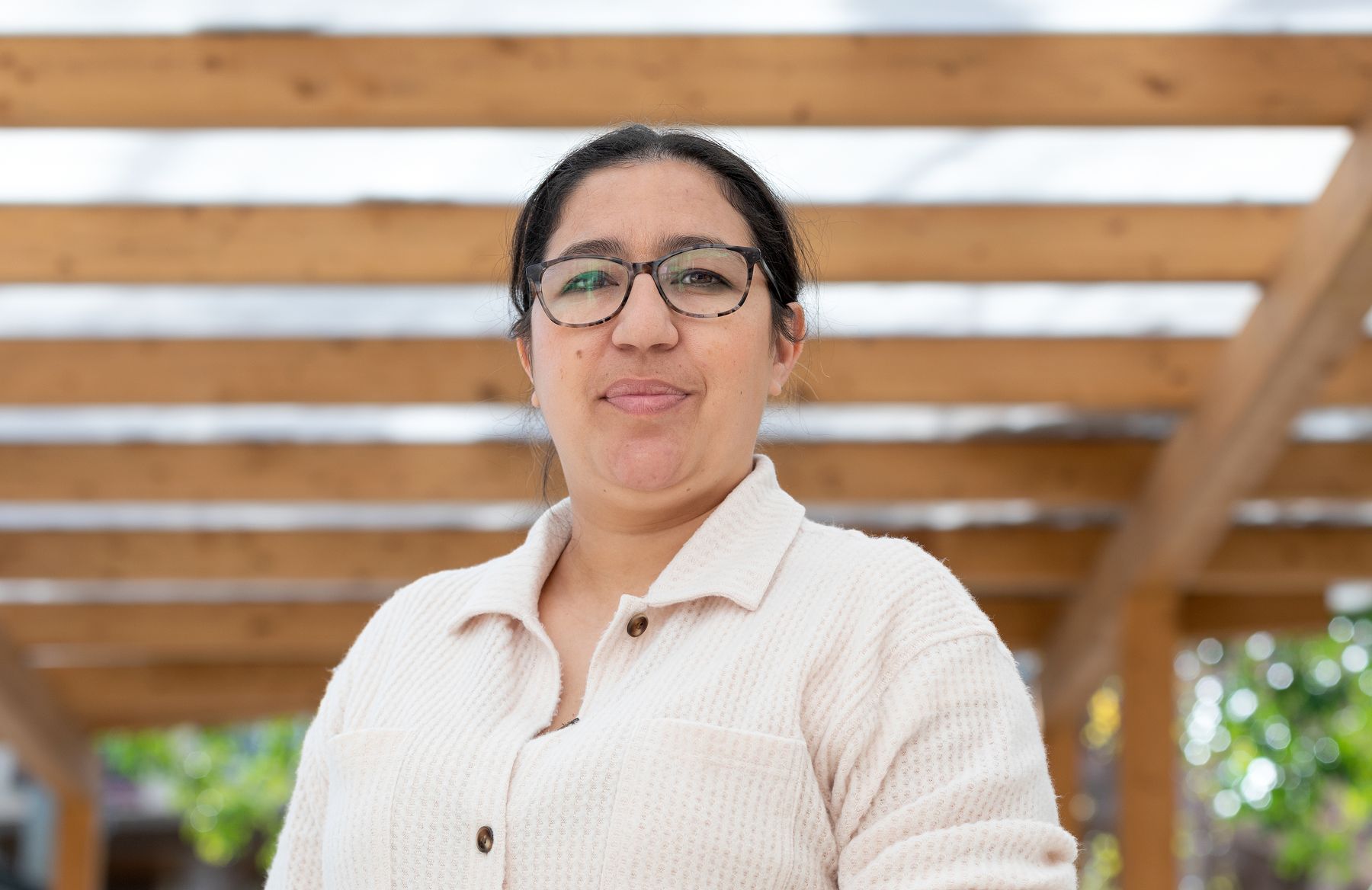
Since October 2, 2020 you have been without electricity in the neighborhood. What's behind it?
They want us to leave our homes hard. Madrid grows south-east, there is no other way to expand the city, and there the Cañada Real hinders it, we are sure it has to do with the great urban promotions of the widening of Vallecas, Los Ahijones and Berrocales. Behind are the City Council of Madrid and the Community of Madrid, but also the Spanish State as a whole, as an accomplice to these violations of rights. We have been in this situation for three years and four winters.
Under what conditions do you live?
We cannot use the refrigerator and the washing machine, nor do we have hot water or heating. Children cannot keep up with school because all subjects are in virtual classrooms and do not have wifi and possibility to charge electronic devices, turn on work candles with the risk of burns or fire. In addition, the City Council of Madrid does not clean the neighborhoods and the garbage is thrown in the street and the homes are unlawfully demolished; it has happened that someone goes on holiday and has thrown the house back because the town hall and the community have decided that this house is abandoned. They are common in the neighborhood.
Points 5 and 6 of Cañada have been the most affected by the cutting of electric power, walking 45 minutes from the city isolated. But in Cañada there are no shops and in the fridges we cannot have food, so we must buy frequently. We washed the clothes by hand, the containers in cold water, heated the shower water in the casseroles and yet the showers are cold, so children often get sick. If children are sick, women can’t go to work or study… This has led to a significant setback in the struggle that activists and feminists have done so far.

Women are more affected and, at the same time, it is you who are largely fighting this situation n.La family reconciliation becomes very heavy, we assume the domestic burden and we do not know how to do
it to devote time to fighting. Before cutting electricity we were already organized, the women's association Tabadol was created in 2007 with the aim of providing women with tools to lead their community. We did a great job in this and in the integration of Moroccan and Gypsy women for their integration into the Madrid community.
"All international organizations committed to social rights give us reason except the Spanish State"
Once the electricity supply was suspended, we were the first to call for the fight, and the association has joined many institutions, associations and political individuals. Together we have tried to socialize and protest the situation of the neighborhood; initially we made daily demonstrations for 26 days in a row, and gradually more organizations and people have been added. We have created the Civica platform to denounce rights violations and support the fight for electricity. We have brought together over 65 human rights associations and published a clear manifesto calling for: “Electricity now, contracts and monitoring table.”
The first point is that of electricity, because we do not accept that in a neighbourhood in Madrid there is no electricity supply. Contracts, because we want to be recognized as citizens, as subjects with rights, so that we can pay for our supplies. Finally, the follow-up table, because we believe that we cannot make progress in the neighborhood of Cañada Real without coordination between the neighbors and the Community of Madrid, where the neighbors must be present in the decisions taken on our neighborhood.
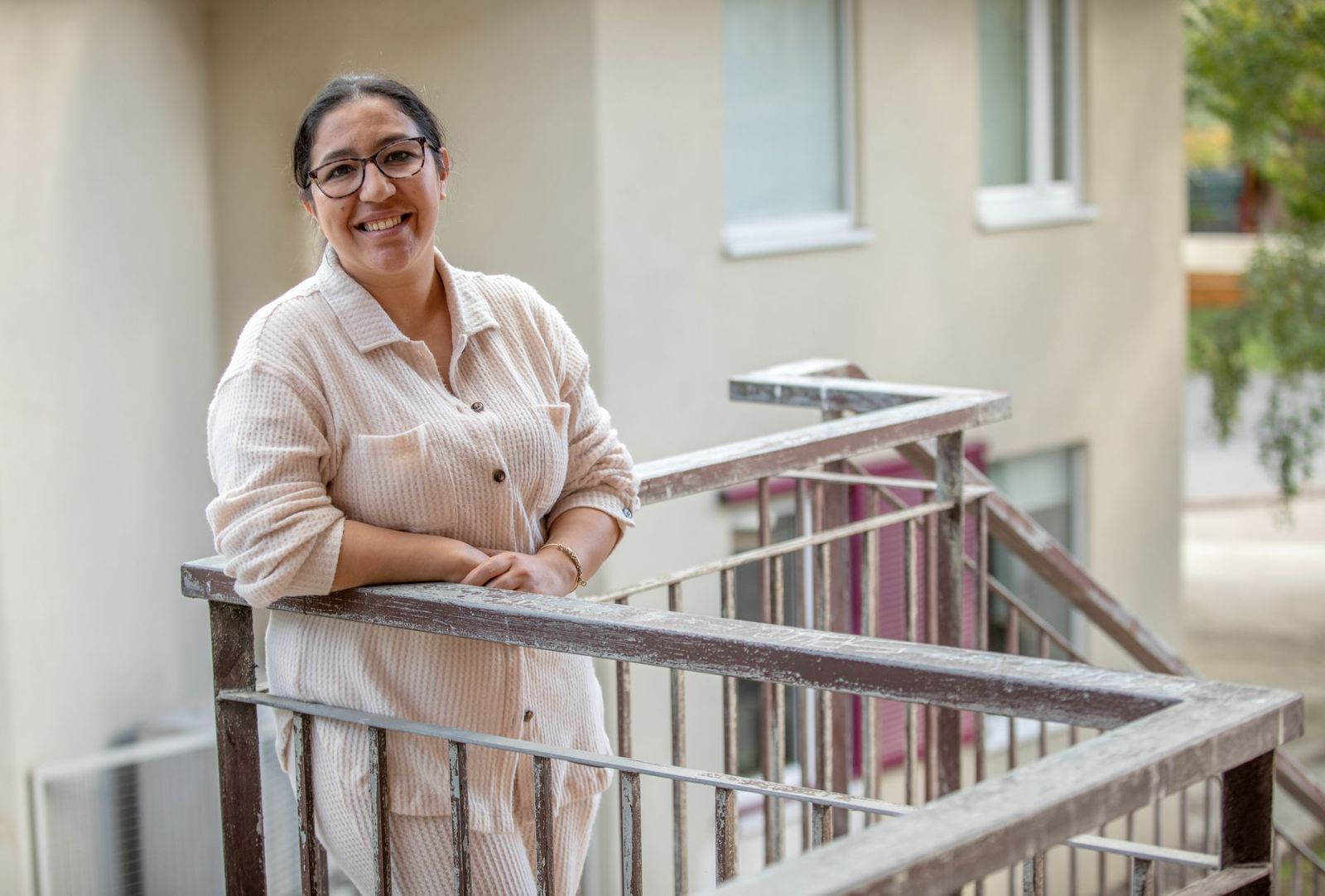
How has the lack of light influenced health for so long?In terms of physical health, children and newborns have suffered many symptoms of freezing, so a
six-month-old boy died during the Filomena storm. Cold and humidity increase the risk of respiratory infections and the health of those suffering from this type of chronic disease is greatly worsening, among other things because they cannot be connected to the electricity network; diabetic people cannot keep the medicines in the fridge well…
But it mainly affects mental health, especially in women and children, because we are the ones who spend the most time at home in these conditions. I remember that at the threshold of the University Access Assessment most adolescents were taking antidepressant pills for anxiety. The performance of students with a high level of education has decreased considerably and they are unable to learn what they want. Cañada is a very young neighborhood with an average of three children per family. These children and adolescents have goals and dreams for the future, but the daily situation makes it difficult for them to achieve them.
The Centre for the Care of Victims of Ill-treatment and Torture Sir(a) produced a report on the situation experienced by the neighbours of Cañada Real and concluded that this is a “torturing environment”, we feel that we are experiencing ongoing torture. Half of the interviewees said they need mental health care and 15.7% think about suicide continuously. We have collaborated with the students of the Master of Fundamental Rights of Carlos III University, who have also produced a report analyzing and denouncing our situation.
The Civica platform complained to the Spanish State before the Social Rights Commission of the Council of Europe for the interruption of electricity supply. What has been the course of the complaint? The
answer we received in October 2022 was that the committee defined what we are experiencing as a violation of rights, and noted that a society living under these conditions in Europe cannot be accepted. It therefore pressed the Spanish State for the immediate installation of the electricity supply. But he responds that he can't restore electricity because the electrical fabric is aged and the neighbor can put us at risk. Cañada Real is 50 years old, why has there been no risk in the last 50 years? In addition, he pointed out that what we said in the complaint is false, that we do not lack a claim to the response from the neighbours nada.Presentamos and are now waiting for the response from the committee. We have great hope in this committee of the European Union.
Have you complained in Spain?A
complaint was lodged with the Examining Court against the Community of Madrid and the supply company Naturgy, in which they also give us the reason. The report of the expert in charge of the Provincial Court reveals that in the high-voltage towers, force limiting devices have been installed to prevent them from reaching enough homes. In the light of the reports, the Ombudsman confirms that Cañada is a humanitarian emergency that has provided the Spanish State with tools to restore electricity. However, we have not managed to get the light back.
The children of the neighborhood wrote about 65 letters explaining their day to day and we have sent them to the six United Nations rapporteurs, the mayor of Madrid, the president of the community and the representative of the Community of Madrid, Cañada Real, who we read before the city council of Madrid in December 2021.
The United Nations Organisation has also given us reason, all international organisations committed to social rights have given us reason, except the Spanish State. As the Ombudsman said, what is happening is a humanitarian emergency and the disaster is not natural, but caused by the administration.

In addition to these formal complaints, what actions have you taken?We have taken
many political, social and cultural actions to denounce the electricity supply disruption. For example, we lit 4,000 candles in tribute to the 4,000 neighbors affected, with the following phrase: “We are turning off.” At Christmas, when the City of Madrid used millions of euros to decorate the streets without us being without electricity, together with the Boamistura association, we illuminated part of the street “we keep fighting, we keep in the dark, we want contracts for Cañada”.
In the last year we have built a park next to the Todo Por la Praxis group, which illuminates the poster “does not play with light” while the children pedal. In addition, three women from the neighborhood participated in the play 400 days without light (400 days without light) and among us we have also made a small play, The Names of Fear. These are some of the actions we have taken.
What did they get from institutions before they cut the light?
Cañada Real has always been fighting because in addition to electricity supply fundamental rights such as health, education, asphalt, social and community care are being violated... But we have noticed the difference for three years, when the PP came to the government of the Community of Madrid. We had talks with the former government, but with the current one it is impossible. We have asked a thousand times for a meeting with the president of the community, but they do not listen to us, for them we are only criminals. We have also tried to meet Naturgy, but we have not succeeded either. It is a highly stigmatized neighborhood that reflects the third world of Spain, extreme poverty at institutional and social level.
It already looked very little “Antifaxista”, so live “Antifascist”, in Madrid, in visor, in t-shirts. And antifaxism was seen as a kind of nostalgia (a visor, a t-shirt), as if it were possible. And now they flourish in the centre of Madrid and, therefore, and in the... [+]







